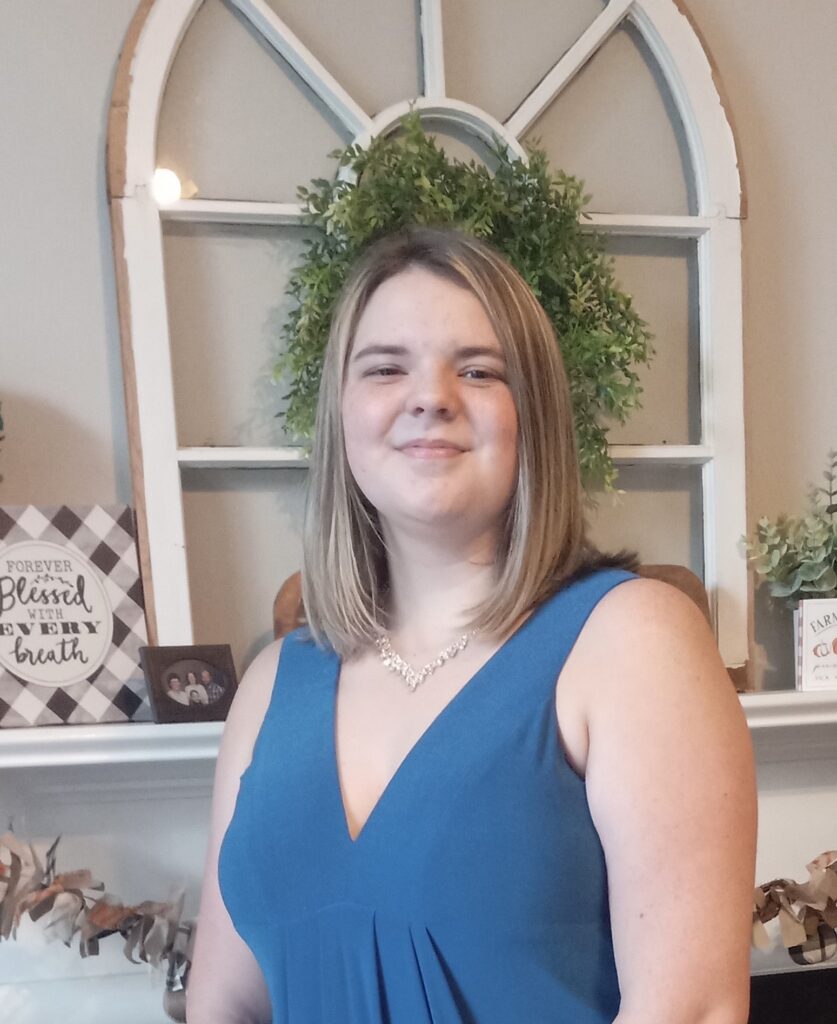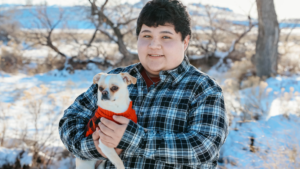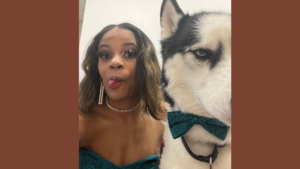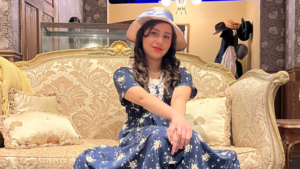This guest post is by Addison Delong, a young woman on the autism spectrum who plans to attend the University of Alabama. Addison is applying for the Spring 2025 Making a Difference Autism Scholarship via the nonprofit KFM Making a Difference started by me, Kerry Magro. I was nonverbal till 2.5 and diagnosed with autism at 4 and you can read more about my organization here.
Autistics on Autism the Next Chapter: Stories You Need to Hear About What Helped Them While Growing Up and Pursuing Their Dreams will be released on Amazon on 3/25/25 and looks at the lives over 75 Autistic adults. 100% of the proceeds from this book will go back to supporting our nonprofits many initiatives, like this scholarship program. Check out the book here.
| Growing up on the autism spectrum without a diagnosis comes with its own unique challenges, many of which are intensified by not understanding the differences you see in yourself, as well as a lack of accommodations or support for your struggles. These experiences are often confusing and can lead one to feel isolated. However, it can also shape one’s identity and strengthen their resilience in unexpected ways. Even when I was little, I felt different. While other kids seemed to navigate social interactions effortlessly, I was caught in a whirlwind of unspoken rules and expectations. I couldn’t decode the perplexing puzzles of conversations, and missed nonverbal cues like tone of voice, body language and sarcasm added more complex layers. I frequently misunderstood others, leading to frustration and self-doubt. Why was it a struggle for me when everyone else around me seemed to know what to say or when it was appropriate to say it? Sensory sensitivities were another area that created issues and further separated me from other kids my age. Strange textures, loud noises, and bright lights were overwhelming, but I couldn’t figure out how to express or control my reactions. I felt like I was living in a world that was turned up to 100, where every detail was magnified to the point where it was too uncomfortable to handle. Since I hadn’t yet been diagnosed with autism spectrum disorder, no one around me understood me or what I was experiencing. Other kids, teachers and even some family members thought I was being dramatic or just plain difficult, which pushed me further into a dark hole of isolation. In school, the structured environment posed both opportunities and challenges. While the routine and daily predictability were comforting, there were certain aspects of learning which were challenging. Abstract concepts, unstructured group activities, or unplanned changes in my schedule triggered anxiety and outbursts. People would interpret my reactions as behavior issues or laziness when I would shut down. This further compounded my feelings of being inadequate. However, when I was engaged in something I was passionate about, I thrived. I’d become hyper focused and exhibit a dedication that surprised everyone, sometimes even myself. My daily life was marked by this complex, dual nature of excelling in some areas while simultaneously struggling in others. But without a diagnosis, it was hard for not only me, but also for others to reconcile these strange contradictions. One of my most overwhelming challenges was figuring out how to navigate relationships. Friendships were the trickiest, since it was extremely difficult to connect in the ways that kids my age understood and expected. My honesty and directness are traits that I later learned were common among people on the autism spectrum. And this bluntness was usually not well received. I didn’t understand jokes and couldn’t understand sarcasm, which led to a lot of awkward moments or unintentionally offending others. Because of this, I felt like an outsider, and I craved connection with other kids my age. But I didn’t know how to connect the dots to build a connection. I had an intense fear of rejection and was paranoid of being ridiculed, which made it even more difficult to take risks socially. Emotionally, it was difficult growing up undiagnosed. Intense feelings or meltdowns were frequent, and others thought I was just having a temper tantrum. Because I didn’t understand my own feelings, it often times led to internalized shame and self-hatred. I wondered why I wasn’t like the other kids and couldn’t handle situations the way they did. Not having an explanation meant that I blamed myself and made be believe that there was something wrong with me. All that being said, there were some silver linings. The struggles that I experienced helped strengthen my ability to adapt in various situations and my resilience. Without having the support that other autistic kids have, I developed my own coping mechanisms in order to attempt to navigate a world that was confusing and overwhelming. I would retreat into the fantasy found in books, find comfort in my routine, and explore creative outlets. I found ways to express myself through theater performances and other methods of managing the chaos. These strategies were my lifeline; they allowed me to carve out my own niches where I could thrive despite the uncertainty around me. Additionally, the experience of my childhood influenced my empathy and understanding of others. Since I always felt misunderstood, I cultivated a deep appreciation for the importance of listening, being patient with others, and accepting differences. These traits have recently helped me form meaningful connections, as well as laying the foundation for my desire to help others find their voice. Receiving a diagnosis later in life was a life-altering moment, because it provided clarity and validation for the years of confusion and self-doubt I had experienced. Everything suddenly made sense, my struggles, sensory sensitivities, and my different ways of thinking. Tin a sense, the diagnosis was liberating, allowing me to embrace who I was and focus on my strengths rather than seeing them as deficits. My diagnosis also opened the door to better knowing myself because was able to put a name to my differences, find resources and connect with others who not only understood but also supported me. Growing up undiagnosed on the autism spectrum was undoubtedly challenging, but it also shaped my resilience, creativity, and determination. Those years taught me the value of perseverance and the importance of embracing individuality. Today, as I look back on my experiences, I am proud of the progress I’ve made and the person I’ve become. While the journey was challenging, I now have a sense of purpose, a desire to help others feel seen and heard, and to advocate for a more inclusive and compassionate world. |
Kerry Magro, a professional speaker and best-selling author who is also on the autism spectrum started the nonprofit KFM Making a Difference in 2011 to help students with autism receive scholarship aid to pursue a post-secondary education. Help us continue to help students with autism go to college by making a tax-deductible donation to our nonprofit here.
Also, consider having Kerry, one of the only professionally accredited speakers on the spectrum in the country, speak at your next event by sending him an inquiry here. If you have a referral for someone who many want him to speak please reach out as well! Kerry speaks with schools, businesses, government agencies, colleges, nonprofit organizations, parent groups and other special events on topics ranging from employment, how to succeed in college with a learning disability, internal communication, living with autism, bullying prevention, social media best practices, innovation, presentation best practices and much more!














